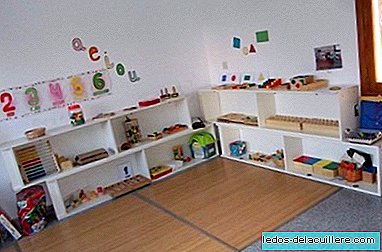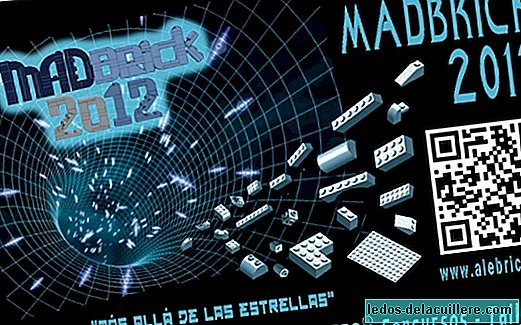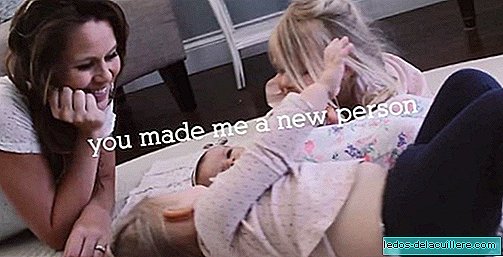
We will continue today interviewing Patricia Vidal Calduch, teacher of Infant Education and Physical Education and creator of the active school Espacio para Crecer (in Almería) as well as being training in White Pedagogy.
What things would you eradicate from classrooms?
It would eradicate the classrooms themselves. I don't believe in classrooms as they are designed. Classrooms with 25 children, with a rigid schedule.
Most classrooms in traditional schools are not prepared to meet the physical and psychological needs of children. I prefer to call it spaces or environments prepared for example: the library, art and theater workshop, orchard, math and science corner ... Spaces, free of judgments, in which the child feels free to feel and experience without fear of error, rich in experiences according to the needs of the children. I bet on creativity, and experiential and meaningful learning. It would be necessary to eliminate the textbooks in the way they are used now, make the curriculum more flexible, reduce the ratios, make the schedule more flexible, mix the ages and, above all, give an impetus to emotional education, and attention to the needs of each child .
Why the high numbers of school failure?
Many children and teenagers feel frustrated. They don't see in the studies any passion, no emotion. They are not motivated, they get bored and close They reach adolescence without knowing each other. Without knowing their own talents and their abilities. Children are born with full curiosity and are guided by their need to learn, go to schools and are forced to sit for hours and hours in rigid chairs and memorize ridiculous fragments of unrelated information. They are manipulated with prizes and punishments to take the exams, to behave according to arbitrary rules. Teachers are in turn treated unfairly, forced to play a specific role, to behave and react in a certain way, and to present information that they are not interested in themselves. This situation causes it to fail when it comes to promoting creative individuals, the child's natural curiosity is destroyed and replaced with mechanical behavior.
In short, the system continues to require learning without pleasure and without real understanding. He still does not trust each child's abilities to manage his development and learning.
Is bullying really a part of the school system?
Unfortunately if. Some experts denote that 25% of children and adolescents suffer bullying: aggressions, teasing, insults ... with all the consequences that entails: sadness, lack of self-esteem, demotivation, depression, even suicide. Many children are subjected to psychological trauma daily.
Emotional security in schools is not being guaranteed. Very little work is done on emotional intelligence (empathy, emotions, feelings of oneself and others ...)
You can't look the other way or ignore the signs, or downplay such a serious problem. We cannot lose sight of the fact that today's children are the adults of tomorrow if a child attacks an equal in school, humiliates and subdues him and nothing is done to eradicate this; probably tomorrow, manifest this same behavior in a similar circumstance. The school (teachers, tutors, psychologists ...) together with parents, must join forces to eradicate this phenomenon.
Is children's creativity encouraged in schools or rather limited?
In most schools it is limited, I would even say that in many they almost nullify the creativity of children.
From small, when they have more capacity to imagine, invent, they are taught that you have to try not to be wrong. The error is penalized and over time that creativity and curiosity goes out. They are continually being addressed authoritatively. Numerous investigations indicate that curiosity and creative search give way, over time, to more rigid, convergent and inflexible behaviors.
Is creative or divergent thinking encouraged?
In school, the child is taught to conform to established patterns, to adopt a convergent rather than divergent thought; The teacher is interested that the children answer what is expected about certain contents and that the students do not get off the paths. Repetition is encouraged instead of creation, accommodation rather than experimentation and that is why most children and young people end up not risking thinking or doing something different for fear of error. Schools are centered in the left hemisphere of the brain, the analysis, the reason, the sequence one by one. Little importance is given to the right hemisphere, which has to do with creativity, emotions, imagination, feelings.
How to change this situation?
Children must be allowed to paint whatever they want, experiment with different materials, which they can create, imagine, not qualify, or penalize the error and give them a lot of confidence.
Together we can create a more creative society, if we trust children and adolescents and their internal potentials.
Is the entrepreneurial mindset encouraged or rather to seek a salary and accept what the system holds?
At the moment our educational system, like the economy, is established to create a product, which is the worker. My question would be: Is an industrial worker the only thing we need at this time, or is it necessary that our education system conceives something different?
Is it really so important to foster creativity for the future of society?
School success means getting good grades, and those who take them out are those who adapt very much to the educational system, who assimilate and repeat what the teacher tells them and follow the established patterns, risking and innovating the minimum so as not to make mistakes or ridicule . Then, in the professional field, creative, innovative, entrepreneurial people are asked to think, to have original ideas, to seek their own solutions; and the students of good grades do not know how to do it because, in school, which is where they were good, they gave them the solution to follow and what prevailed was to do things as they were told, in a single way, without thinking differently.
Entrepreneurship is the future, but in the current education system it cancels it because when a child answers something other than expected, teachers correct it, and thus they cut off their ability to be creative and innovative. It is estimated that more than 70% of children in early childhood education will work in jobs that do not exist today, so we must encourage, from the beginning of schooling, the development of people with a critical, restless and curious, thoughtful spirit, with innovative desire and scientific vocation.
Children should be encouraged to defend their ideas with passion and respect.
We will finish our tomorrow Interview with this renovating teacher and full of ideas, Patricia Vidal.












